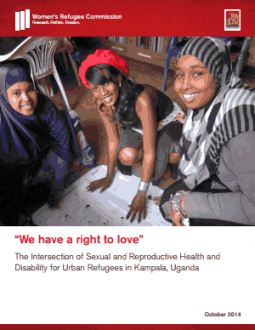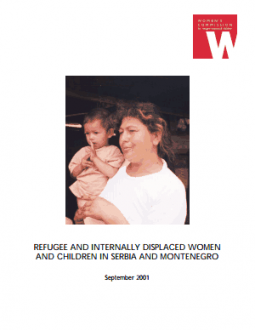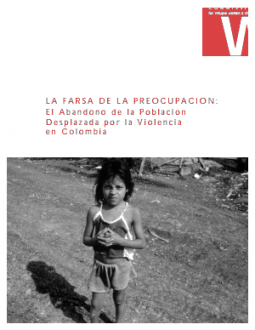
The Intersection of Sexual and Reproductive Health and Rights and Disability
PublishedResearch from Kenya, Uganda and Nepal
The needs of crisis-affected populations with disabilities are notably absent from global sexual and reproductive health and gender guidelines and standards for humanitarian practice. To address this gap, this study presents a qualitative examination of the specific risks, needs and barriers for refugees with disabilities to accessing SRH services, as well as their capacities and practical ways to overcome these challenges.
The report includes major findings, as well as specific recommendations for donors and government supporting agencies, as well as disability-focused organizations.
Findings are based on findings from three humanitarian settings: urban refugees in Kampala, Uganda and camp-based refugees in kakuma, Kenya, and camp-based refugees in Nepal.
The Intersection of Sexual and Reproductive Health and Rights and Disability in Three Refugee Contexts
Damak, Nepal | "It doesn’t matter if you are disabled. You are talented"
Kampala, Uganda | "We Have the Right to Love"
Kakuma Camp, Kenya | “The Woman Can Decide for Herself”
Nepal | Reports for Contributors
Kenya | Reports for Contributors
Uganda | Reports for Contributors
Photographs Used in Safety Mapping Exercise
Illustrations of Violence Used in Research



